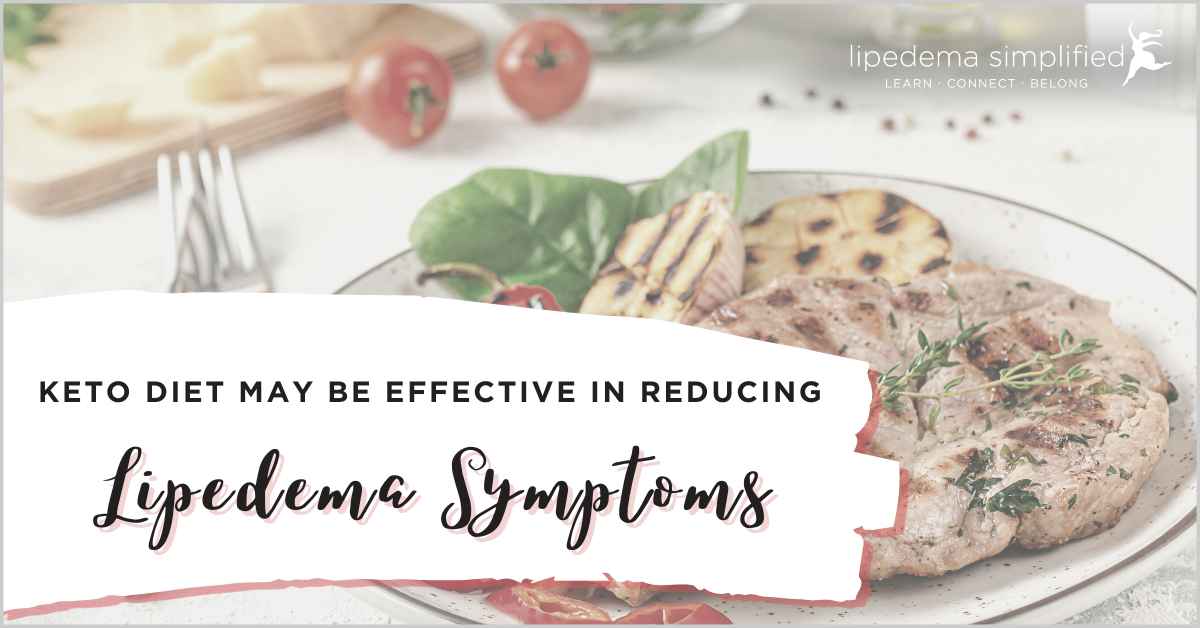
New Study Suggests That Ketogenic (Keto) Diet
Can Help Manage Inflammation and Pain
Associated with Lipedema
A keto diet is a low-carb, high-fat diet that forces your body to burn fat for energy instead of carbohydrates. This can help reduce inflammation, which is a major factor in lipedema.
Today, I’d like to tell you about a paper by Drs. Roberto Cannataro and Erika Cione in Italy. The paper is called: Lipedema and Nutrition: What’s the Link? It was published in the peer-reviewed journal ACTA Scientific Nutritional Health in November 2020. These researchers have published other papers about the efficacy of a ketogenic diet in reducing inflammation. In this article, they suggest that one of the potent interventions to reduce inflammation, and thus the symptoms of lipedema, is ketogenic nutrition.
The authors suggest that lipedema, particularly in its more advanced stages, is a highly inflammatory condition. The signs of inflammation include frequent nodular formations in lipedema fat tissue, easy bruising, and pain. Obesity compounds inflammation in lipedema as the two conditions often co-occur and obesity is well-known to increase markers of inflammation in the body. Chronic inflammation may turn out to be a central feature of lipedema.
The authors believe that the effectiveness of any treatment for lipedema can be found in its impact on inflammation. This can include compression garments, manual lymph drainage and other manual therapies, shock wave and radiofrequency therapy, traditional Chinese medicine, liposuction surgery, pneumatic compression pumps, and physical activity. Most notably, the authors believe a ketogenic diet can be the most effective for reducing inflammation.
The Rare Adipose Disorder Diet, or RAD, is discussed as mildly effective because, the authors state, of some provisions that reduce inflammation such as removing gluten, lactose, and soy from the diet. However, they believe that there is otherwise no scientific basis for this low-calorie, low-fat, plant-based diet to be effective in the case of lipedema.
This paper came out just before our own paper was published online in Medical Hypotheses. We wrote about why we believe that a ketogenic diet is effective for managing the symptoms of lipedema. It is exciting to see that this group in Italy independently has come up with the same idea that we did.
The idea of using keto for the management of lipedema is rapidly gaining ground. Women around the world are finding this intervention to be highly effective and are creating a groundswell of support. Now there are several case study reports, clinical trials, and expert opinion papers on the topic.
If you are considering trying the keto diet for lipedema, here are a few tips:
- Consult with a healthcare professional before making dietary changes.
- Gradually transition into a ketogenic diet to minimize discomfort.
- Focus on whole, unprocessed foods.
- Stay hydrated and monitor electrolyte intake.
- Listen to your body and adjust as needed.
- Be patient. It can take a few weeks to see results.
- Consider using a coach trained in the therapeutic use of a ketogenic diet and knowledgeable about lipedema. https://lipedema-simplified.org/coaching/
Conclusion
The research on the keto diet and lipedema is promising. More research is needed, but the available evidence suggests that a keto diet may be an effective way to manage the symptoms of this condition. If you are considering trying the keto diet for lipedema, talk to your doctor first.
~ Leslyn Keith, OTD, CLT-LANA
Board President, Director of Research | The Lipedema Project
